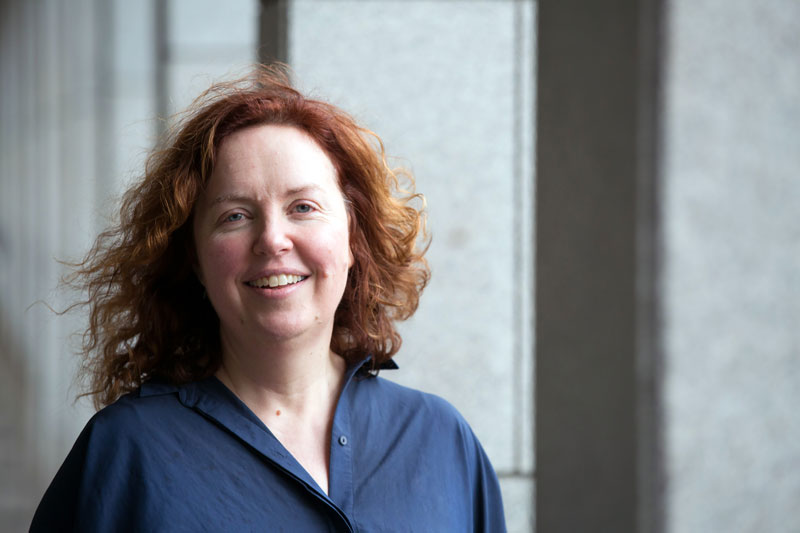Prof Linda Doyle is asking the provostial electorate to “imagine Trinity in 2031”, with seven main pillars in her manifesto outlining a vision for College in ten years’ time.
“Imagine how much more we can be” is the primary message of Doyle’s manifesto, which focuses on hot-button issues such as transparency, teaching and Trinity values.
Among the seven ambitious promises Doyle makes to the electorate, she pledges to create “a re-energised democracy” that “results in action”. This commitment is a timely one: in a survey of 100 Trinity academics conducted by The University Times, 42 per cent of participants named administration and bureaucracy the number-one issue facing them at the moment. Doyle promises more communication, transparency and efficiency more generally in College systems, saying “we need to take back time”.
Doyle aims to make Trinity “a place where we can truly focus on teaching and research”. She envisages that by 2031, “the equation of ‘administration first, then teaching and research’ has been reversed. Our systems work. We prioritise the wellbeing of all our staff”.
Doyle promises to create “a place where research thrives”, addressing the issues there are with promotion systems, which she says she will renew.
“There are funding, equipment, infrastructure, and space issues. There is a need for much more and a wider range of support mechanisms for all types of research and all types of researchers.”
The relationship between College, government and civil society is also addressed in Doyle’s manifesto. She highlights “the importance of the third-level sector in securing the health of the nation”, referencing again the major role Trinity research has played during the coronavirus pandemic.
“Funding has yet to recover to pre-crisis (2008) levels. The combined impact of rising student numbers and staff cuts has resulted in decline in the student-staff ratio across the sector.”
Doyle’s manifesto criticises the “increased concentration of power at the centre and a growth of more corporate managerial approaches driven in part by the homogenising of the university system at a global level”. The commercialisation of College is something that has been of concern to many of the academic staff. Doyle also argues that the “increased distribution of ‘authority without responsibility’” has been problematic.
Diversity and inclusion is a recurring theme in Doyle’s manifesto. One of her promises is to create a “deep-rooted fairness” in College.
“Among our staff there is a strong belief that we privilege and reward a limited range of contributions to Trinity rather than taking into account the breadth of contributions that are made. Our valuing of limited contributions is most obvious in the current academic promotion process and in the lack of any meaningful promotion route for professional staff.”
She claims the pandemic has “shown us that being online opens up additional avenues and makes education possible in new and different ways. It is clear that Trinity’s future will embrace both the physical and the virtual. And as we move forward we will need to consider both worlds in whatever way they work best for students and staff.”
Other promises made in Doyle’s manifesto include “a productive and creative place to work” which “focuses on how the wider demands of life impinge on work-life balance, and pays attention to the mental well-being of all”, as well as a “Climate-First Trinity” which aims to address “the greatest threat our world faces” by “treat[ing]the ecological as part and parcel of everything we do”.
Doyle is running alongside two other candidates, Prof Jane Ohlmeyer and Prof Linda Hogan.
Campaigning for the provost elections launched today and will continue until April 7th, when over 800 academics will vote online.







